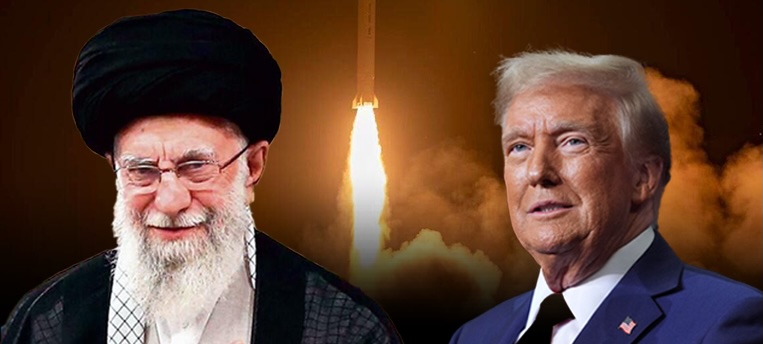Already a subscriber? Make sure to log into your account before viewing this content. You can access your account by hitting the “login” button on the top right corner. Still unable to see the content after signing in? Make sure your card on file is up-to-date.
Iranian officials have pushed back on claims from the White House that upcoming nuclear negotiations will be conducted directly, insisting instead that the talks in Oman will take place through a mediator.
Some shit you should know before you read: If you’re unaware, tensions between the US and Iran have hit new highs recently over their nuclear program. The US has issued warnings that Iran is likely advancing toward the development of a nuclear weapon, with American intelligence officials recently assessing that Tehran is now closer than ever before to achieving weapons-grade capabilities. President Donald Trump, who is leading renewed diplomatic efforts, has warned that Iran must come to the table for direct negotiations to completely dismantle its nuclear infrastructure—or face potential “bombing.” In preparation for possible escalation, the US has been rapidly deploying military assets across the Middle East, including to the island of Diego Garcia, where B-2 stealth bombers are stationed—known for their ability to penetrate hardened underground sites like Iran’s heavily fortified Fordow nuclear facility (which sits under a mountain). Just two days ago, Trump warned that if Iran fails to reach a deal, it would be “in great danger.” Despite all of this, Iran continues to claim that its nuclear activities are strictly for peaceful purposes, a claim widely rejected by Western countries.

A Planet Lab/FAS satellite image from earlier today shows six B-2 bombers at Diego Garcia in the Indian Ocean.
What’s going on now: In a notable development, Iranian Foreign Minister Abbas Araghchi doubled down on Iran’s insistence that upcoming negotiations with the United States will be indirect, firmly rejecting claims from President Trump and senior US officials that face-to-face talks will be held on Saturday. In an opinion piece published in The Washington Post, Araghchi wrote, “Iran is ready to engage in earnest and with a view to seal a deal. We will meet in Oman on Saturday for indirect negotiations.” He described the format not as a delay tactic but a deliberate “strategic choice” driven by “a significant wall of mistrust” between the two countries.
Araghchi also criticized the United States “maximum pressure” campaign, arguing that trust cannot be rebuilt under the threat of military force. “To move forward today, we first need to agree that there can be no ‘military option,’ let alone a ‘military solution,'” he wrote. “We seek peace, but will never accept submission. The ball is now in America’s court.”
This all comes as Israeli Prime Minister Benjamin Netanyahu has taken a far more hardline stance, arguing that any viable deal must follow the model of Libya’s 2003 disarmament—an agreement that saw the complete dismantling of their nuclear program under US oversight. In a video statement following his White House visit, Netanyahu said, “This can be done by agreement, but only if the agreement is a Libya-style agreement… We go in, blow up the facilities, dismantle all the equipment, under American supervision and American execution—that is good.”

He warned that if such a robust framework isn’t adopted, Iran will use negotiations to stall while continuing to advance its nuclear capabilities. “A second possibility is that this does not happen and Iran simply drags out talks. And then the option is military. Everyone understands this,” Netanyahu said, adding that he discussed these contingencies at length with Trump.






